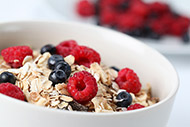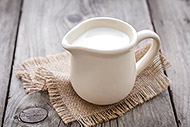
If you are a coffee lover, you likely perk up when you hear that it improves health. But you may also wonder if you are doing damage when you hear negative reports. Knowing both the pros and cons of drinking coffee will help you make the best choice for your health.
The Good and the Bad
Past studies have shown that heavy coffee consumption could lead to an increased risk for heart disease. According to the Mayo Clinic, recent studies do not show a connection between moderate coffee consumption and the risk of heart disease or cancer. Coffee has been found to boost memory, improve concentration, and decrease fatigue.
The antioxidants in coffee appear to be associated with its major health benefits. They may help to protect brain cells and reduce the risk of dementia and Parkinson’s disease.
Many of the negative effects of coffee drinking are due to caffeine. There is evidence that coffee can increase blood pressure, increase heart rate, and decrease bone density. The caffeine in coffee can also lead to irritability, anxiety, stomach upset, and a lack of sleep. Compounds in unfiltered coffee could also increase LDL (bad) cholesterol.
Drinking Coffee for Health
So how much coffee is too much? Moderate consumption is defined as about four cups of coffee or 400 milligrams of caffeine. The negative effects of coffee are found with an intake of five or more cups per day. Some people have a greater sensitivity to caffeine, and certain health conditions and medications can also affect coffee’s impact on the body.
If you are healthy and have not been advised by a medical professional to avoid coffee, enjoy it in moderation, just as you would any other food or drink. The negative effects become a greater risk when you begin to rely on coffee to reduce fatigue. This is because your system will build up a tolerance to the caffeine over time, meaning you will need to drink more and more to get the alertness you are seeking.
Also, be sure to drink your four cups or less in the morning. While the lasting effects of caffeine vary from person to person, it typically takes about six hours for it to leave the body. Drinking coffee too late in the day can disrupt your sleep, which in turn can lead to increased coffee consumption the next day, resulting in an ongoing cycle of overconsumption.



 3 Healthy Lunches for Your Work Week
3 Healthy Lunches for Your Work Week
 5 Tips for Stretching Your Budget for Healthy Food
5 Tips for Stretching Your Budget for Healthy Food
 Best Ways to Reduce Added Sugar
Best Ways to Reduce Added Sugar
 Healthy Tips to Lighten Up Picnic Foods
Healthy Tips to Lighten Up Picnic Foods
 Do You Need to Drink Milk?
Do You Need to Drink Milk?
 Tips to Keep Track of Water Intake
Tips to Keep Track of Water Intake
 Butter vs. Margarine: What’s the Best Choice?
Butter vs. Margarine: What’s the Best Choice?
 7 Good Mood Foods
7 Good Mood Foods

 Pinterest
Pinterest RSS Feed
RSS Feed